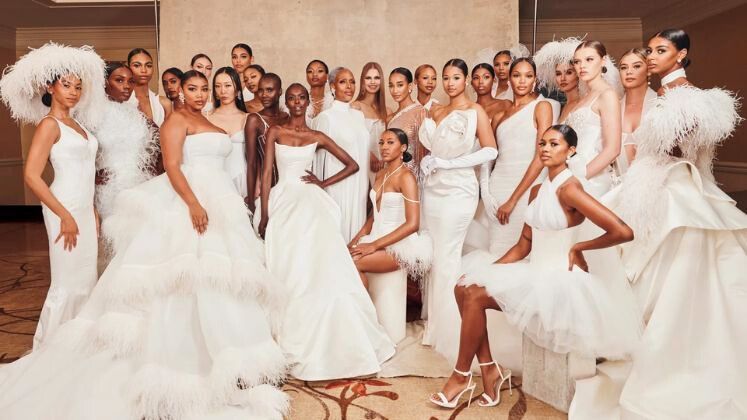
Prominent American bridal businesses, including Watters, Maggie Sottero, Mon Cheri, Allure Bridals, and Justin Alexander, have come together to urge President Donald Trump to exempt formalwear from upcoming tariff hikes, citing the threat of severe job losses and a spike in wedding dress costs.
The CEO of Justin Alexander, Justin Warshaw, led the request in an open letter posted on Change.org, pleading with the Trump administration to take into account an exemption for Harmonized Tariff Schedule (HTS) number 6204.43.4030. He warned that if nothing is done right now, the cost of wedding gowns in the US may increase by 20 per cent.
In his letter, Warshaw underlined the dire repercussions of the tariffs, claiming that Americans would lose their jobs and businesses and that families across would no longer be able to afford to celebrate life’s most significant occasions.
Key players in the bridal industry, such as Kelly Crum, CEO of Allure Bridals; Steve Lang, CEO of Mon Cheri; Sydney Watters Rohleder, director of Watters; Wayne Harris, CEO of Essense of Australia; Ben Speed, CEO of Madi Lane; Kelly Midgley, CEO of Maggie Sottero; and Phyllis Brasch Librach, president of Sydney’s Closet, have signed the petition, which has amassed almost 2,500 signatures.
He emphasised how bridal, prom, and formal occasion dresses are particularly vulnerable to tariff rises because they call on specific skills like embroidery, lacework, and hand-beading that are not easily found in the American workforce at the necessary scale.
Because of their trained labour and well-established infrastructure, the letter disclosed that almost 90 per cent of formalwear is currently made in Asia, including China, Vietnam, the Philippines, India, and Myanmar. Warshaw emphasised that domestic replication of these supply chains, which have been established over decades, would cause significant disruption and cost hikes that would ultimately affect American people.
Watters director Sydney Watters Rohleder expressed these worries on social media, highlighting the danger to independent merchants and small enterprises. She clarified that the manufacture of bridal gowns necessitates highly skilled craftsmanship and specialized equipment, neither of which are readily available nor scalable in the United States.






